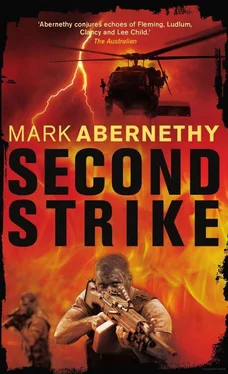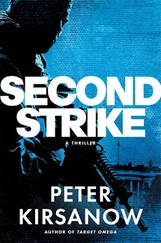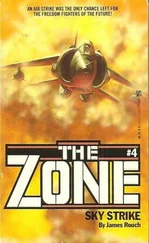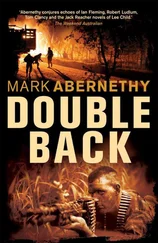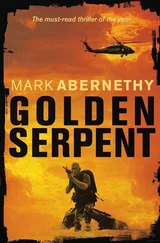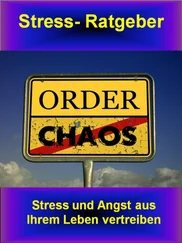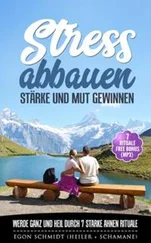Mark Abernethy - Second Strike
Здесь есть возможность читать онлайн «Mark Abernethy - Second Strike» весь текст электронной книги совершенно бесплатно (целиком полную версию без сокращений). В некоторых случаях можно слушать аудио, скачать через торрент в формате fb2 и присутствует краткое содержание. Жанр: Триллер, на английском языке. Описание произведения, (предисловие) а так же отзывы посетителей доступны на портале библиотеки ЛибКат.
- Название:Second Strike
- Автор:
- Жанр:
- Год:неизвестен
- ISBN:нет данных
- Рейтинг книги:4 / 5. Голосов: 1
-
Избранное:Добавить в избранное
- Отзывы:
-
Ваша оценка:
- 80
- 1
- 2
- 3
- 4
- 5
Second Strike: краткое содержание, описание и аннотация
Предлагаем к чтению аннотацию, описание, краткое содержание или предисловие (зависит от того, что написал сам автор книги «Second Strike»). Если вы не нашли необходимую информацию о книге — напишите в комментариях, мы постараемся отыскать её.
Second Strike — читать онлайн бесплатно полную книгу (весь текст) целиком
Ниже представлен текст книги, разбитый по страницам. Система сохранения места последней прочитанной страницы, позволяет с удобством читать онлайн бесплатно книгу «Second Strike», без необходимости каждый раз заново искать на чём Вы остановились. Поставьте закладку, и сможете в любой момент перейти на страницу, на которой закончили чтение.
Интервал:
Закладка:
In the last room they checked, Mac noticed one of the beds – it didn’t look right. He slid it away from the wall, sending a cockroach scurrying up the wall. Searching around the bedhead Mac found a small white notepad from the Danau Toba International hotel. Freddi snapped on a latex glove and picked it up by the corner. There was nothing written on it but Freddi turned it into the light and it seemed likely the BAIS techies would fi nd latent writing on the pages.
‘I’ll get this down to the guys,’ said Freddi. ‘Might be useful.’
Mac nodded, but his mind was spinning back into the past, into a place of terror. The Danau Toba was in Medan, northern Sumatra.
CHAPTER 37
Edwin was waiting out the front of the Shangri-La in the black S-class when Mac got down there at 8.11 am. They sped south through the heat and traffi c while Mac got on the phone to Saba, the owner of an expat bar called Bavaria Lagerhaus in the embassy district of south Jakarta. Saba said he’d have his bodyguard waiting in the rear lane in ten minutes.
Edwin parked half a block away and Mac got out, walked the opposite side of the road looking for eyes. He ducked into a neighbouring park for some triangulated counter-surveillance, and then crossed back and nipped into the rear lane, his empty backpack over one shoulder. Saba’s bodyguard was waiting. A heavyset Javanese sporting a gold watch, he patted down Mac’s pants and shirt then fl icked his head slightly, indicating it was okay to enter. Closing and bolting the door behind them, the bodyguard walked past Mac, past the stacked boxes of Tiger beer and Beefeater London Dry, into a storeroom. After fl icking the lights, he walked to the end of the room, his chromed Desert Eagle handgun now obvious beneath the trop shirt.
The left wall of the room was lined with large black locker boxes used by intelligence people working in Jakarta. A former spy himself, Saba allowed other spooks to keep their undeclared belongings in this room. The bodyguard stood by Mac’s locker – number 9 – selected a key from a retractable chain. Pulling out his own keyring, Mac joined the bodyguard. They inserted at the same time and turned their keys.
The front of the locker folded down to create its own little picnic table, and Mac pulled the steel drawer out onto it. There were three cushion-sized clear plastic Ziploc bags fi lled with cash in denominations of US dollars, rupiah, Singapore dollars and one bag with a mix of yen, Aussie dollars and pounds sterling. There were also several packs of passports, drivers’ licences and credit cards, held together with rubber bands. He picked up the pack in the name of Brandon Collier, his unoffi cial cover – the one that ASIS didn’t know about – and put it in his pack, along with a black vinyl toilet bag with a full disguise kit.
At the rear of the drawer were three guns and boxes of ammo.
You weren’t allowed to touch fi rearms in Saba’s joint, so Mac pointed at the Heckler amp; Koch P9S handgun in the dark blue nylon hip rig and one box of. 45 loads. The bodyguard picked them up, put them in Mac’s pack. Then Mac took out the bag of mixed currency and a handful of US dollars, about $5000 worth.
Mac paused as he returned the cash bag. Lying along the bottom of the drawer was a yellow A4 envelope, unmarked. He’d forgotten all about it but it came back to him now. After the Kuta bombings, Mac had written a report on the pursuit of Hassan Ali’s gang and its terrible conclusion in northern Sumatra. He’d technically been seconded to BAIS under Operation Handmaiden so the debriefi ng to his controller, Joe Imbruglia, had been short and dense, and the bits and pieces he’d copied and kept in this yellow envelope were probably looked over quickly by Joe and just as quickly forgotten.
The cries from Canberra after Kuta had been deafening and Joe and Mac had moved on quickly into a series of more urgent operations assisting the Australian Federal Police and Indonesian National Police track down the local bombers, the ones that BAIS called ‘the patsies’.
In those days ASIS had so much egg on its face for missing the signs of an attack on a popular Australian holiday destination that they’d all worked like mules for the next six months, an era when some of ASIS’s best young talent walked away, unwilling to work around the clock for seven days a week.
Mac had fi led his report, stashed his mementos, and plunged into the fi eld to chase down tangos in the jungles of South-East Asia. He was part of the crew that nabbed one of bomber Amrozi’s associates. They knew from monitoring mobile phone traffi c between numbers in Amrozi’s phone that one of the bombers was hiding out in a village in central Java. There had been a bunch of Aussies and Indons in plainclothes but it wasn’t until they got there that they realised that no one had seen a picture of the bloke. So Mac had told one of the POLRI guys to pounce on the next bloke who answered his phone. They were in the main market square of the village when Mac dialled the number and a young Indon in a Pepsi-Cola T-shirt had answered his phone. Gotcha.
Mac zipped his pack and made for the back door of Saba’s. The bodyguard closed the locker and let him out into the back lane, and as Mac turned to say thanks the steel reinforced door shut in his face.
The mango was good and the coffee was great, but another twenty hours of sleep would have been even better. Mac took his time and tried to think through his day. Around him the energy of the Powering Asia conference had evaporated with the shootings of the previous arvo and only stragglers from think tanks and die-hards from the UN made up the numbers.
He tried to get straight what he was chasing and what he actually wanted to do about it. The Hassan crew seemed to have stepped into the old Dr A.Q. Khan networks and taken them on another tangent.
Did Mac want revenge on these people? Was it about his pride? Or was there a greater danger to Australia that presented itself out of the whole mess? Was there unfi nished business with these people? Could he claim to Davidson that he still hadn’t got to the bottom of NIME?
If Canberra really wanted to know the end-user of Bennelong’s enrichment codes, then Mac only had the shell of that answer. He believed he had enough to say that the end-user was the A.Q. Khan illegal nuclear network. Khan himself was out of commission – apparently – having been put under house arrest for a few days in
‘04 only to be pardoned. It seemed that making an estimated US$200 million from selling uranium-enrichment equipment to Libya, Iraq and North Korea was all a misunderstanding.
Khan had started back in the 1970s when, fresh out of university, he had joined an engineering fi rm in the Netherlands. He’d been tailed by Dutch intelligence after he had made too many inquiries at UCN, an engineering company that built high-speed centrifuges that enriched uranium.
Khan had suddenly left the Netherlands in 1975 and landed back in his home country with blueprints of the German P-1 centrifuge, stolen from UCN. The Pakistani government built the Engineering Research Laboratory for Khan, and by 1978 ERL had built a P-1 centrifuge and enriched its own uranium.
Pakistan became the Americans’ new best friend after the Soviets invaded Afghanistan and so during the 1980s Khan’s ERL sold its centrifuges to Iran and Iraq, all the while developing a P-2 centrifuge that could enrich uranium in half the time of the P-1.
In the 1990s Khan changed his company to KRL – Khan Engineering Laboratory – after beating charges laid in the Netherlands for nuclear espionage. He entered a joint weapons-development program with North Korea in which Pakistan would get its own version of the No Dong Korean missile delivery systems and North Korea would get its own weapons-grade uranium facility. He also formed a partnership with several businessmen who would do the sales and shipping of Khan’s goods. One of them was B.A.S. Tahir, the Sri Lankan who by late 2000 was operating out of a British-owned Dubai company called Gulf Technical Industries. Indonesian intelligence believed that another Khan operative was Hassan Ali, whose main client in South-East Asia was Jemaah Islamiyah.
Читать дальшеИнтервал:
Закладка:
Похожие книги на «Second Strike»
Представляем Вашему вниманию похожие книги на «Second Strike» списком для выбора. Мы отобрали схожую по названию и смыслу литературу в надежде предоставить читателям больше вариантов отыскать новые, интересные, ещё непрочитанные произведения.
Обсуждение, отзывы о книге «Second Strike» и просто собственные мнения читателей. Оставьте ваши комментарии, напишите, что Вы думаете о произведении, его смысле или главных героях. Укажите что конкретно понравилось, а что нет, и почему Вы так считаете.
